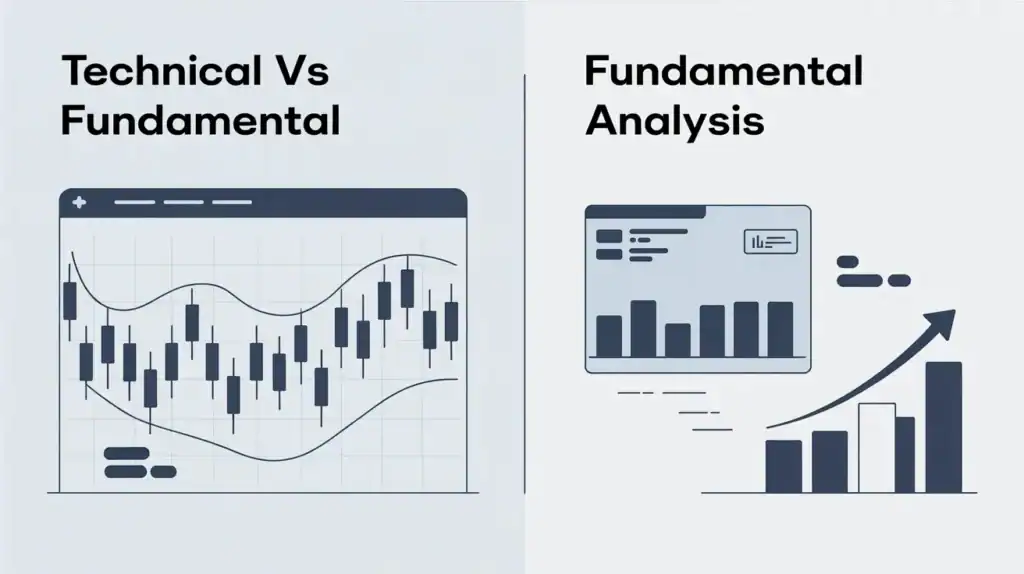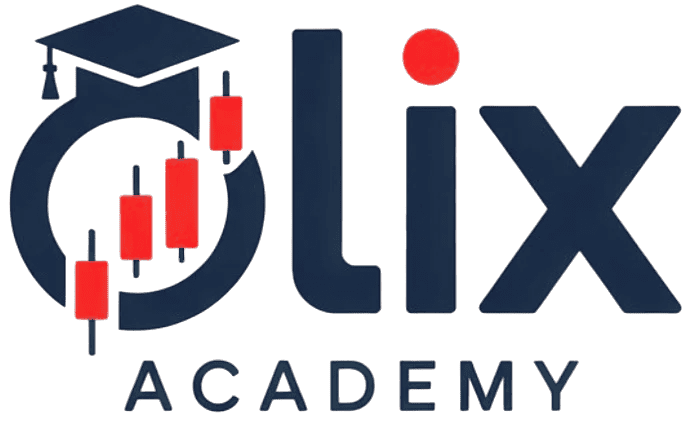Most people who start looking for a stock broker course already know they want to trade. The question they are actually asking is whether paying for a course will make any difference, or whether they are about to spend money on something that sounds structured but delivers the same information they could have found for free in an afternoon.
That is a fair question. The honest answer is that it depends entirely on which course you choose and whether it covers what actually matters.
One thing worth clarifying before we go further: the term “stock broker course” gets used loosely. Some programs are built around licensing exams for people pursuing a career in financial services. Most are trading education courses designed to teach you how to read markets, manage risk, and build a strategy. This guide focuses on the second category, which is what the majority of people searching this term are actually looking for.
What Does a Stock Broker Course Actually Teach You?
The best stock trading courses do not just show you how to place a trade. They build your understanding of how financial markets work from scratch, which is what separates traders who last from those who burn through their accounts in the first few months.
A quality program starts with how stock exchanges work, what drives price movement, and how shares of publicly traded companies actually get bought and sold throughout a trading day. From there it moves into trading strategies, covering approaches from day trading to longer-term investment thinking so you can decide which style fits your schedule and your goals.
Risk management comes next, and this is where most beginners disengage too early. Learning to protect your capital, size your positions correctly, and survive losing trades without wrecking your account is the skill that keeps traders in the game long term. The courses worth your money treat this as a core subject, not a two-page chapter at the back.
You will also cover types of orders, chart reading, market data interpretation, and how to identify trade setups using technical indicators. More advanced programs introduce options trading and derivatives, giving you a broader picture of how traders operate across different financial markets. The best courses finish with paper trading exercises so you can apply what you have learned before you risk actual money.
Technical Analysis vs Fundamental Analysis: You Need Both

Every stock broker course worth taking introduces you to two core ways of deciding whether a stock is worth buying. Beginners often assume they have to pick one. That assumption causes real problems later.
Technical analysis focuses on price charts, patterns, and trading volume. Take a trader watching Tesla stock during a volatile week. She notices the price has tested the same support level three times without breaking below it and interprets that pattern as a potential entry before a move higher. Her decision is based entirely on what the chart is showing, not on what the company reported last quarter.
Fundamental analysis works differently. A fundamental investor looking at the same stock pulls up Tesla’s revenue growth, profit margins, and balance sheet to decide whether the current price reflects the company’s actual value. If the business looks strong but the stock is trading at a discount to what the numbers justify, that is what triggers the trade.
Strong traders understand both approaches and know when to apply each one. They use technical analysis to time entries and exits, and fundamental analysis to decide which stocks deserve their attention in the first place. A stock trading course that skips either one leaves you working with half the information you need.
Five Questions to Ask Before You Enroll in Any Trading Course
Most courses look credible on a sales page. These five questions cut through that quickly, and the answers tell you more about a program than any marketing copy will.
Start with risk management. Does the curriculum cover it as a standalone topic with its own module, or is it buried inside something else? Any program that treats risk management as a footnote is showing you its priorities before you spend a penny. From there, look at who is teaching. There is a real difference between someone who understands trading academically and someone who has managed live positions through volatile markets with their own capital on the line, and that difference shows up immediately in how concepts get explained.
Next, check whether the course includes live or practical components. Video lessons alone are not enough. You want paper trading access, live session walkthroughs, or real market examples that force you to apply what you are learning rather than just absorb it. Then look at the refund policy. A program confident in its quality offers a trial period, and one that does not is worth questioning before you commit. Finally, find reviews from students who are not on the course’s own website. Testimonials selected by the provider tell you almost nothing. Feedback in trading communities and on third-party platforms, where responses are unfiltered, tells you a great deal.
Olix Academy is one program worth measuring against these questions directly. No course is perfect for every learner, but Olix answers each of them clearly.
Their stock trading course covers risk management as a dedicated module, not a footnote. Instructors bring genuine trading experience to live sessions where you watch professionals analyze real markets in real time. A 5-day money-back guarantee means you can evaluate the program before you are fully committed to it.
Over 2,000 students have completed the course. Of those, 92% became profitable within their first six months of finishing the program, which is well above what most new traders achieve trading independently. For traders serious about building a real foundation, it is worth a look: olixacademy.com/courses/stocks-trading-course.
Why Completing a Course Does Not Automatically Make You a Profitable Trader
A good stock broker course gives you knowledge. It does not give you results. That distinction matters because most retail traders lose money in their first year, and that is true even among people who have completed structured programs.
Consider James, a software engineer who spent three months working through a well-regarded trading course. He understood support and resistance, could identify chart patterns, and knew exactly what position sizing meant. Then he opened a live account and lost 30% of his capital in six weeks. The problem was not that he had learned the wrong things. It was that executing a strategy under real pressure, with real money moving in real time, is a completely different experience from studying it.
The gap between understanding and execution affects self-directed learners and course graduates equally. The programs that produce better outcomes over time are the ones that address this directly, through trading psychology content, live session exposure, and structured practice on a simulator before any real capital is involved. When you are evaluating any course, treat the psychological and behavioral components as seriously as the technical ones.
Frequently Asked Questions
Is a stock broker course worth it?
It depends on the course and what you bring to it. A structured program with experienced instructors, practical components, and a serious focus on risk management gives you a foundation that takes most self-directed learners years to build independently. The question is not whether courses work in general. It is whether the specific program you are considering teaches what actually matters.
Which stock broker course is best for beginners?
The best beginner course starts with market fundamentals before introducing any strategy, treats risk management as a core topic rather than an afterthought, and includes practical exercises rather than theory alone. Look for programs that let you practice on a simulator before committing real capital, and check that the instructor has genuine trading experience rather than just teaching credentials.
Are stock broker courses free?
Some are. Brokerage platforms and sites like Coursera offer free introductory content that covers the basics competently. The limitation is usually structure and depth rather than quality, and free resources tend to work best as a supplement to a structured program rather than a replacement for one.
How long does a stock market course take to complete?
Most structured programs take between 4 and 12 weeks depending on how much time you dedicate each week. Rushing through foundational material tends to create gaps that cost you money when you are trading live, and a pace of 5 to 10 hours per week is realistic for most working adults.
Can I become a stock broker without a degree?
For trading your own account, no degree or formal qualification is required. For a licensed career as a broker or financial advisor, you will need to pass regulated exams such as the FINRA Series 7 in the United States, and some trading education programs are specifically designed to prepare students for those requirements.
What do you study to become a stock broker?
For a licensed career, the focus is on securities regulation, financial products, compliance, and client management. For personal trading, what matters is technical analysis, risk management, trading psychology, and strategy development. These are two distinct skill sets that only partially overlap.
Ready to Start Your Trading Education?
The right stock broker course will not close the gap between knowledge and execution for you. Only screen time, deliberate practice, and honest reflection on your losing trades will do that. What a good course does is make sure the foundation you are building is actually worth executing on.
Start with a program that takes risk management and trading psychology as seriously as chart reading. Practice on a simulator before you risk real money. Build slowly, based on what you have actually tested.
The mechanics of trading are learnable in weeks. The discipline to apply them consistently under pressure is what takes years, and it starts with being honest about that from day one.
